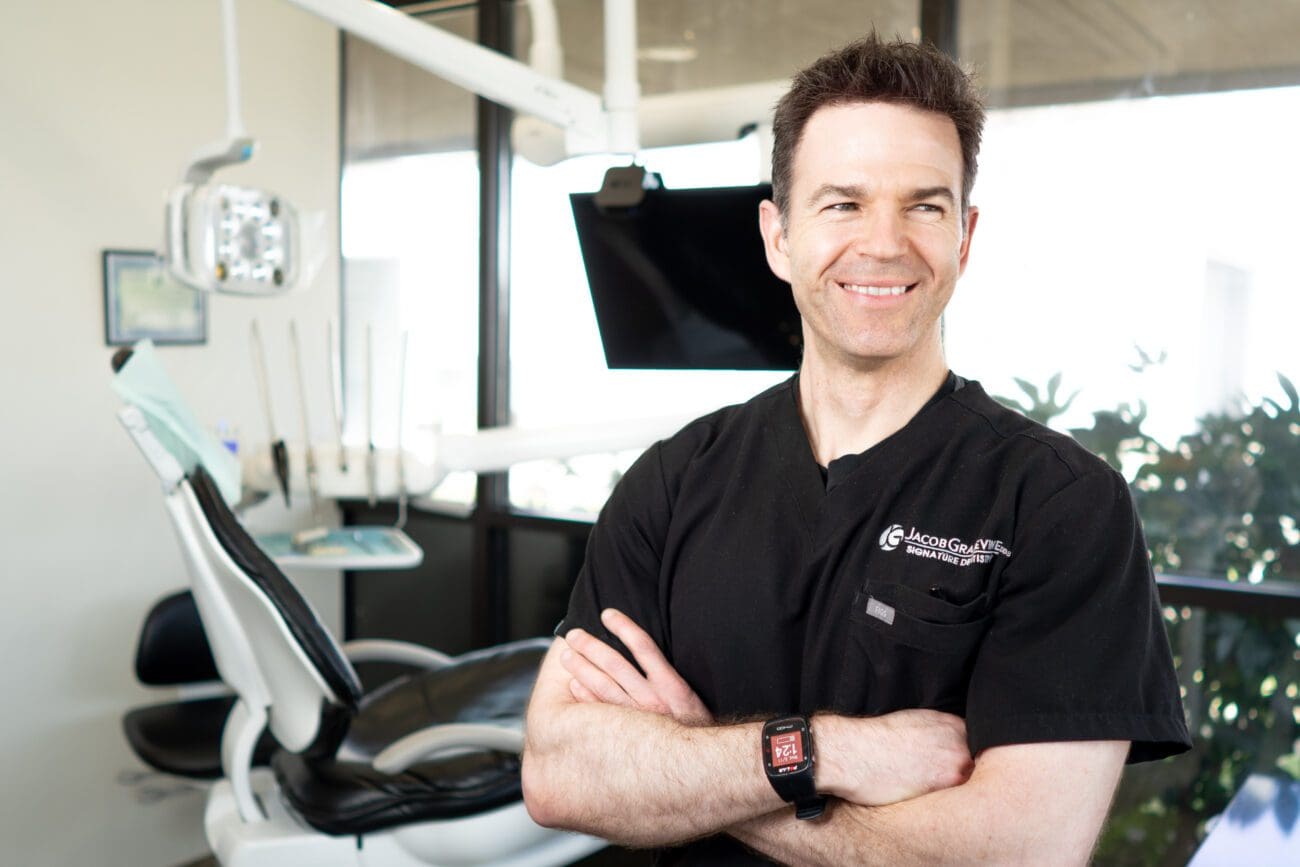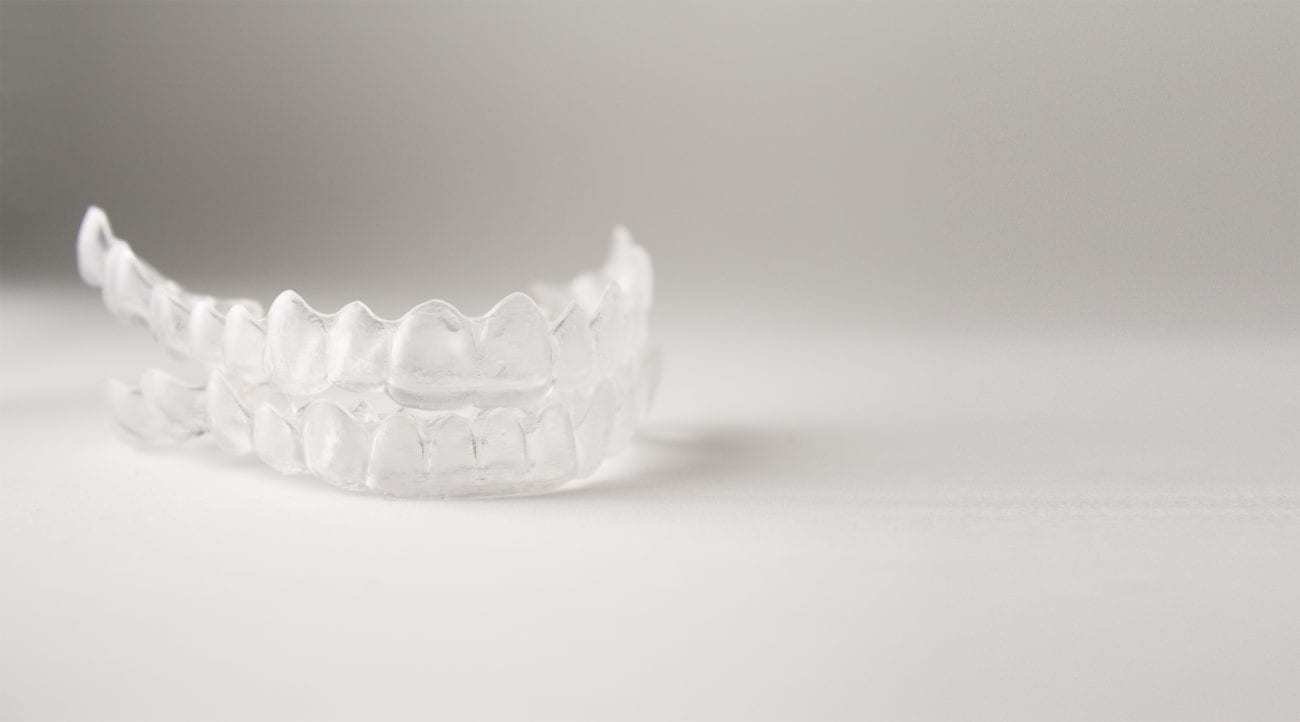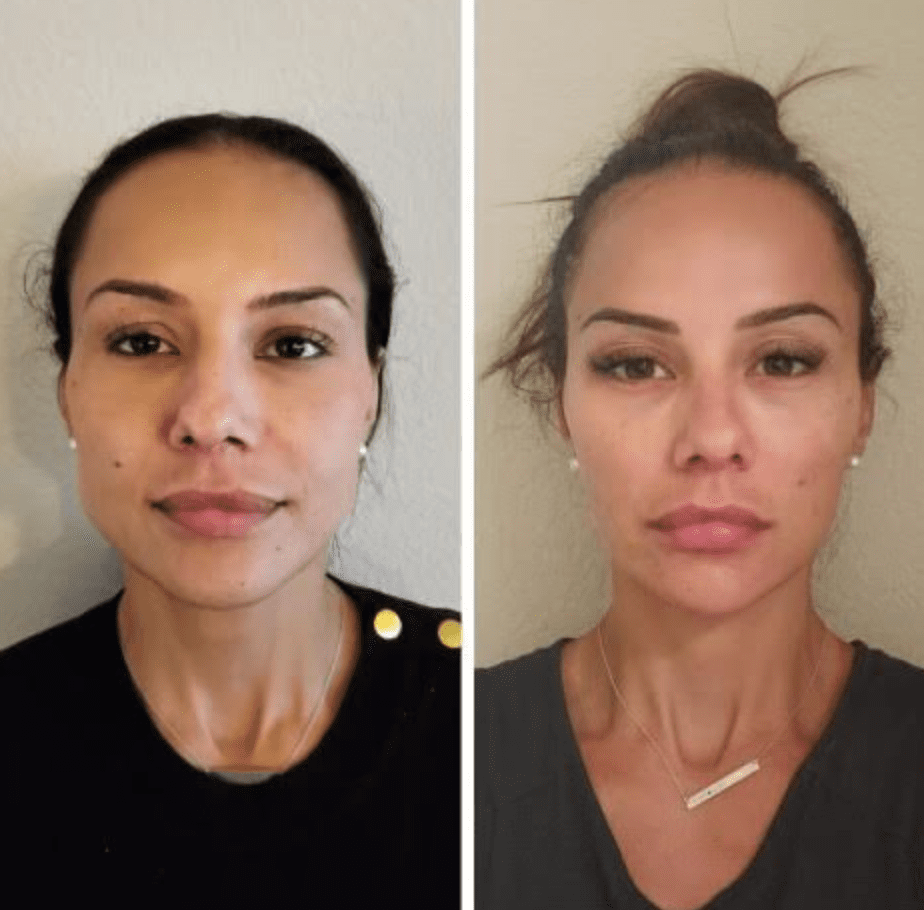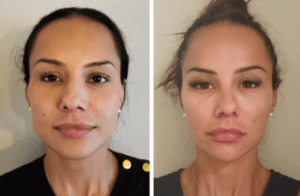- New Patients Call (972) 449-5759
- Request Appointment

Temporomandibular Joint Disorder, more often referred to as TMJ, is a condition that causes chronic or acute inflammation of the temporomandibular joint. This joint connects the mandible to the skull, and unbalanced muscles often cause much pain and discomfort. The inflammation can result in significant impairment and pain.
Examples of issues caused by TMJ are migraines, tooth wear, and grinding as well as limitations in chewing. The instances of pain in both jaws and face can be almost unbearable.
Very few medical professionals have experience with this complex disorder. Plano, Texas dentist Dr. Jacob Grapevine has special training and experience working with patients suffering from Temporomandibular Joint Disorder, commonly known as TMJ. Dr. Grapevine completed postgraduate training to be able to diagnose and treat TMJ dysfunction. In addition to providing TMJ treatment options, we provide restorative dentistry treatment options.
Fill out the forms linked below and send in your answers to our office. Dr. Grapevine will review your form and set up a complimentary call to discuss your TMD concerns.
Click To Fill Out New Patient Questionnaire for TMD Issues
(Please fill out the 3 page form and return to our office for your complimentary call. Thank you!)
TMJ issues can be very complex and create limitations in the quality of life. Arriving at a proper diagnosis is critical for the success of treatment and relief of symptoms, Dr. Grapevine uses advanced technology as part of a comprehensive approach to both analysis and treatment with the goal of a long term result that addresses the underlying issue affecting the function of the bite.
The treatment approach for TMJ disorders varies between the fields of both neuropathy and dentistry. While analgesic pain relief is often prescribed for those suffering from this disorder, often times the pain is more neurologic in cause and nature. As a result, pain relievers often do not provide an adequate effect.
Another approach to pain management involves the use of tricyclic antidepressants such as Amitriptyline or Nortriptyline to provide pain modification. This approach proves to be more effective for those not searching for long term treatment.

Orthotics for TMJ: Dr. Grapevine is one of few Dallas area dentists using an orthotic approach to addressing a diagnosed bite disorder. An orthotic for TMJ is a special orthopedic appliance that is designed to correct an underlying orthopedic problem impacting the jaw and bite.
It will help your jaw to rest in a natural position, one that does not stress the joints or muscles and cause common symptoms of TMJ. Over time, an orthotic can facilitate physiologic changes in the fit of the bite for a long term resolution.

Mouthguard/Night guard: For many patients, the use of a custom mouthguard to stop teeth grinding can provide symptom relief and prevent further damage to the teeth and gums. Dr. Grapevine will evaluate all aspects of your occlusal system (this includes teeth, gums, and jaw joints) to identify the underlying cause of your bite problem and recommend appropriate treatment options.
Most new patients tell us that if they were given a guard by another dental office, they could not wear it due to discomfort. How we approach guard therapy is different than most offices and our patients who have been through guard therapy in our office tell us they cannot sleep without it.
It is all about the technique, follow up, the proper type of adjustments. You should see improvements and can expect your guard to last for several years.
Left: Before and After TMJ treatment with an orthotic. Notice how the jaw muscles have relaxed and the face appears leaner. Patient weighs the same.
Performing a thorough examination of the temporomandibular joints is recommended before commencing with further treatment in order to analyze the patient’s bite and joint. A less invasive treatment type might be bio-feedback. Using a headband for this type of therapy allows treatment during sleep while para-functional jaw habits are modified. Other treatments that involve an investment of time for results include:
Some treatments involve the elimination of para-functional habits through examining patient histories, which reveal much about symptoms and their causes. Jaw stretching and relaxation exercises, suggested by health care providers, can be done at home.
Surgery is sometimes indicated for TMJ, but usually only as a last resort. With more treatments coming to the fore that are less invasive, the use of MRIs or CAT scans is not as prevalent as it was in past years. TMJ has become a very treatable condition that no longer involves chronic pain in most patients.
One out of every 10 Americans suffers from chronic headaches, and they spend over half a billion dollars every year for over-the-counter medications to relieve their pain. They never imagine that their headaches may be caused by TMJ, and that their pain is the result of a bad bite.
Based on your evaluation with Dr. Grapevine, we may recommend one or several treatment options to restore balance to the TMJ joints and occlusal system. TMJ Treatment in Frisco TX may include the use of a custom night guard to prevent teeth grinding during sleep. Our dentist in Plano, TX may also recommend orthodontic treatment to straighten the teeth and create a harmonious bite relationship.
When your teeth do not fit together correctly and/or your jaw joints – (TMJ joints) – do not work properly, pain, pressure, and limitations to chewing can occur. Common symptoms that can occur include: migraine headaches, frequent morning headaches, jaw popping/clicking, and unexplained facial, neck, shoulder or jaw pain.
Learn MoreDr. Grapevine will evaluate your smile and help you determine if you require treatment or not. Additionally, our office provides unique tests that provide quick results and a diagnosis to determine if a patient is clenching/grinding at night as well as during the daytime. Since there are many symptoms associated with TMJ, you should visit a certified TMJ specialist for an accurate diagnosis.
Learn MoreNo, most TMJ issues can be addressed with non-invasive dental treatments. Only in severe cases will oral surgery be necessary to correct the issue. We will do our best to provide conservative treatments whenever possible to avoid recommending oral surgery.
Learn More
TMJ treatment can even change the shape of your jaw. These patients underwent TMJ therapy with Dr. Grapevine and experienced visible results.
